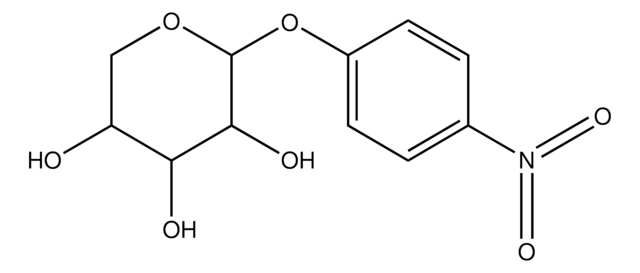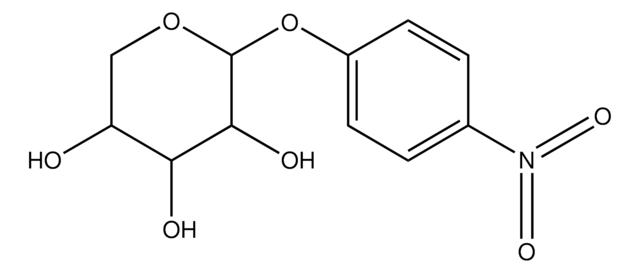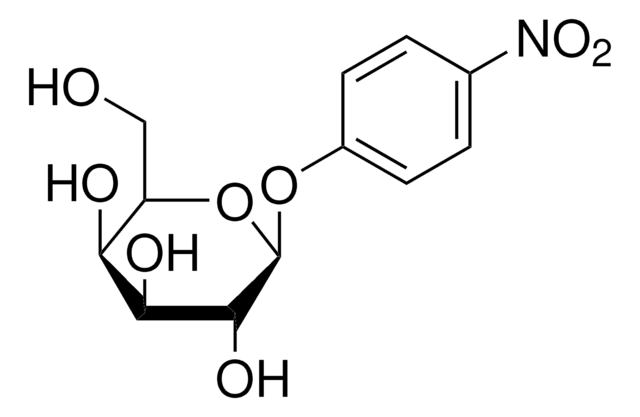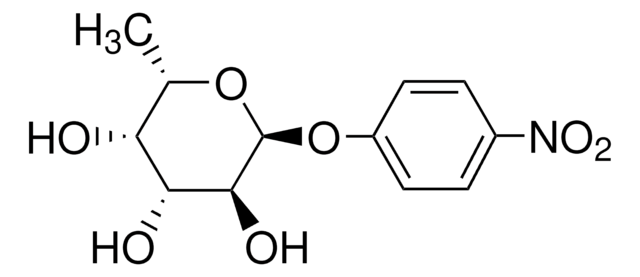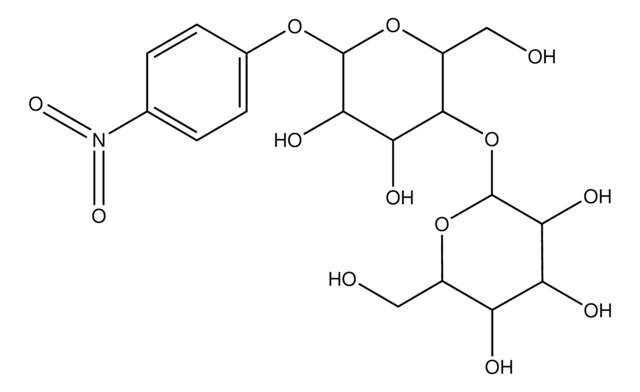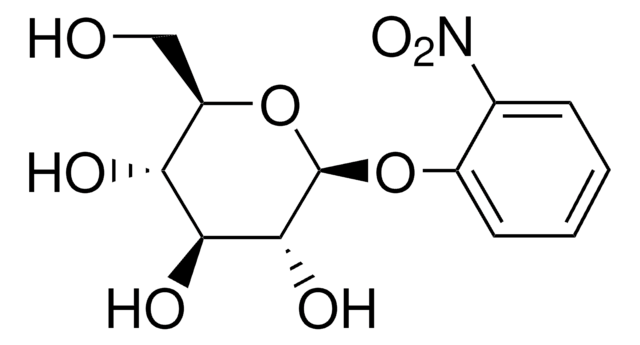N3641
4-Nitrophenyl α-L-arabinofuranoside
chromogenic, ≥98% (TLC), powder
Synonym(s):
4-nitrophenyl-ARA
About This Item
Recommended Products
product name
4-Nitrophenyl α-L-arabinofuranoside, ≥98% (TLC)
Assay
≥98% (TLC)
form
powder
solubility
methanol: 50 mg/mL
storage temp.
−20°C
SMILES string
OC[C@@H]1O[C@@H](Oc2ccc(cc2)[N+]([O-])=O)[C@H](O)[C@H]1O
InChI
1S/C11H13NO7/c13-5-8-9(14)10(15)11(19-8)18-7-3-1-6(2-4-7)12(16)17/h1-4,8-11,13-15H,5H2/t8-,9-,10+,11+/m0/s1
InChI key
DUYYBTBDYZXISX-UKKRHICBSA-N
Looking for similar products? Visit Product Comparison Guide
Related Categories
Application
- as a substrate for α-arabinofuranosidase in an enzymatic assay to determine glycosidase activities in Oenococcus oeni strains
- to determine the enzymatic activity of α-arabinofuranosidase
- as a p-nitrophenol linked substrate to determine its activity in Aspergillus niger NW249 culture filtrate
Storage Class Code
11 - Combustible Solids
WGK
WGK 3
Flash Point(F)
Not applicable
Flash Point(C)
Not applicable
Personal Protective Equipment
Certificates of Analysis (COA)
Search for Certificates of Analysis (COA) by entering the products Lot/Batch Number. Lot and Batch Numbers can be found on a product’s label following the words ‘Lot’ or ‘Batch’.
Already Own This Product?
Find documentation for the products that you have recently purchased in the Document Library.
Customers Also Viewed
Our team of scientists has experience in all areas of research including Life Science, Material Science, Chemical Synthesis, Chromatography, Analytical and many others.
Contact Technical Service